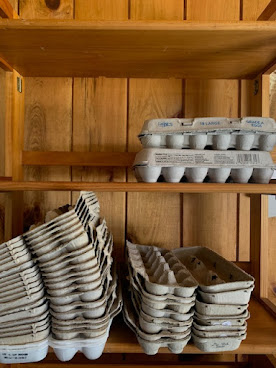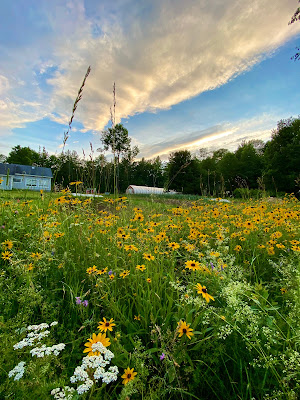How to Reduce Food Waste
Ever think about where the uneaten food that you leave on your plate goes once you scrape it into the trash? Ever wonder about the difference between "sell by" dates and expiration dates? This blog post will hopefully answer these questions and any others that you have about food waste and food distribution!
First of all, what is FOOD WASTE?
Food waste is basically food that is leftover or deemed "unfit" for humans to consume. The term "unfit" is used loosely in this context because lots of food that could be consumed is often discarded because it either looks unappealing (bruises, oddly shaped, dirty), is past its "sell by" date or expiration date, or too large a quantity of food etc.
Why do we CARE about food waste?
While there is a HUGE food waste surplus that has accumulated internationally, there is also a HUGE food insecurity problem that plagues the globe. It seems odd that throughout the world there are some places with excessive amounts of food, while other places struggling from malnourishment and starvation.
What can YOU do to help this food waste problem?
While individually we cannot solve this problem, we have the power to make smaller changes, that if modeled and executed by others, will help shift this paradigm. Here are some idea's of what you can do to make a difference:
- Take smaller portions and go back for seconds
*This reduces the amount we need to throw away at the end of the meal.
-Shop at organic small farms who support "gleaning"
*Gleaning is the practice of harvesting and distributing the "ugly"/bruised/halved/oddly shaped produce to their customers, often at cheaper prices. Grocery stores like Price Chopper and Shaws will throw away these unattractive fruits and vegetables often without considering donating them to food pantry and homeless shelters.
*CCF often offers "farm seconds" containing any veggies that might look awkward, be bruised, but are otherwise still good to eat distribution. Shareholders can take these at no extra cost!
-Spread the word.
*Talk about this food waste issues with others to increase this food waste education and end the stigma around funky looking produce!
-Compost!
*CCF composts all year round. Next season we are thinking of collecting shareholders compost so we can add even more to our plantings!
-Reuse.
*Think about the purchase of goods an the packaging that they come in. Often this packaging in being thrown out as well as eventually the object that you purchased. Buy goods that you know you can reuse or recycle to reduce the waste that is accumulated.
First of all, what is FOOD WASTE?
Food waste is basically food that is leftover or deemed "unfit" for humans to consume. The term "unfit" is used loosely in this context because lots of food that could be consumed is often discarded because it either looks unappealing (bruises, oddly shaped, dirty), is past its "sell by" date or expiration date, or too large a quantity of food etc.
Why do we CARE about food waste?
While there is a HUGE food waste surplus that has accumulated internationally, there is also a HUGE food insecurity problem that plagues the globe. It seems odd that throughout the world there are some places with excessive amounts of food, while other places struggling from malnourishment and starvation.
What can YOU do to help this food waste problem?
While individually we cannot solve this problem, we have the power to make smaller changes, that if modeled and executed by others, will help shift this paradigm. Here are some idea's of what you can do to make a difference:
- Take smaller portions and go back for seconds
*This reduces the amount we need to throw away at the end of the meal.
-Shop at organic small farms who support "gleaning"
*Gleaning is the practice of harvesting and distributing the "ugly"/bruised/halved/oddly shaped produce to their customers, often at cheaper prices. Grocery stores like Price Chopper and Shaws will throw away these unattractive fruits and vegetables often without considering donating them to food pantry and homeless shelters.
*CCF often offers "farm seconds" containing any veggies that might look awkward, be bruised, but are otherwise still good to eat distribution. Shareholders can take these at no extra cost!
-Spread the word.
*Talk about this food waste issues with others to increase this food waste education and end the stigma around funky looking produce!
-Compost!
*CCF composts all year round. Next season we are thinking of collecting shareholders compost so we can add even more to our plantings!
-Reuse.
*Think about the purchase of goods an the packaging that they come in. Often this packaging in being thrown out as well as eventually the object that you purchased. Buy goods that you know you can reuse or recycle to reduce the waste that is accumulated.



Magnificent beat ! I would like to apprentice whilst you amend your website, how could i subscribe for a weblog site? The account helped me a appropriate deal. I had been a little bit acquainted of this your broadcast provided brilliant transparent idea www.continental-delight.com.sg
ReplyDeleteTo avoid cross contamination keep raw and cooked foods separate when storing and preparing.Toronto pancakes
ReplyDelete